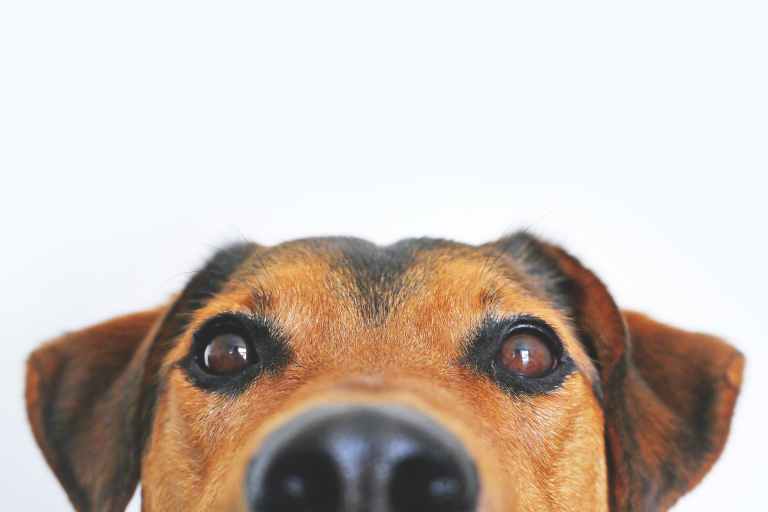Your Dog Can Smell the Passage of Time - Here's How
We've heard of drug sniffers and bomb sniffers, but time sniffers? That's new.


Lumen3.com / Pexels
It's a common claim made by dog owners: many canines can anticipate regularly occurring events with undeniable precision.
But your pup isn't a psychic, nor can he tell time in the traditional sense. So how does your doggy counterpart know when your kids are about to get off the school bus or when you’re almost home from work?
The answer, according to researcher and founder of Barnard College's Dog Cognition Lab Alexandra Horowitz, is your pooch's ability to smell the passage of time.
If you wonder what ur dog does all day, this is Liam at 5pm when he knows his mummy is coming home soon pic.twitter.com/OMwSQH9L7Q
— mikhailo (@pmangox) September 16, 2019
Confused? It might sound otherworldly, but researchers like Horowitz believe that our dogs' heightened sense of smell allows them to measure and perceive time in ways never imagined.
Recently, this has provided animal researchers with astounding insight into the complex world of how man's best friend experiences reality itself—and how that reality might be drastically different than our own.
It comes down to your dog's olfactory lobes
Your dog's sniffing superpowers are credited to the astounding amount of sensory receptor cells at work in the canine olfactory system. These cells make the canine perception of smell 10,000 to 100,000 times more powerful than our own according to most scientists.
That's why dog's noses are seriously sensitive. It's what gives them the ability to sniff out drugs, bombs, missing persons, and cancer. Recent studies even show that canine noses can be trained to quickly and accurately detect malaria.
Once inhaled, these receptor cells take hold of odors and use them to relay information to the brain. They help the dog detect the type of scent as well as its origin and overall strength. What's surprising, however, is how your dog’s brain translates that information.
Dog brains interpret an odor's strength as a timestamp
Odors change over time. When you leave your home or go to work, your scent gradually weakens. Based on the strength of your scent, dogs are able to tell how long you’ve been gone—and when you’ll likely return.
My dog Kopi when he knows my wife is coming home. pic.twitter.com/EfrRLyqzXI
— Jimishness (@jlock4820) November 29, 2019
It's this increased sensitivity that allows our canine friends to accurately anticipate regularly occurring events with a precision that is, well, uncanny. It's also why Horowitz and other animal scientists believe dogs can, in a way, smell the passage of time.
Because of their noses, dogs perceive time differently
"All dogs have the ability to create a picture of the world through smell," Horowitz noted in an interview with Fresh Air. This picture, which is loaded with information undetectable to the human nose, allows canines the seemingly mystical superpower of being present in the current moment while simultaneously perceiving elements of the past.
Horowitz describes the canine perception as a "rubber banded" in this sense; while human perception is concretely anchored in the present moment, canine perception is likely more elastic, stretching in a way the human brain cannot effectively imagine.
While there's still a lot of mystery surrounding dog brains and their sensory perception, one thing seems whimsically certain: in a way, the passage of time does have a smell. Our noses just aren't equipped to pick up on it.
More OMG

Fashion of The Future: Anti-surveillance Clothing
Modern Survival Guide 101: How to protect your privacy with clothes.

10 Crazy Space Ideas Which Almost Came True
The world would have been a different place if these had come true.

What's inside Area 51?
A short promenade with the aliens on Earth.

Fake billionaires around us
The story of an ordinary guy who became a billionaire for a couple of years.

2021 Entrepreneurship Ideas Or How One Taiwanese Guy Streams His Life
Modern technologies gives us a wide range of opportunities in fulfilling our dreams.
